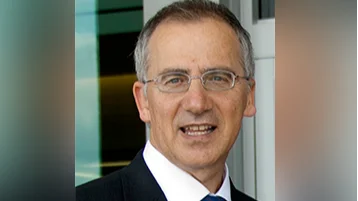
Researchers at UTHealth Houston have received a $100,000 grant from the John Ritter Foundation to support the development of an app aimed at helping clinicians assess and manage thoracic aortic disease. The project focuses on conditions such as Marfan syndrome, Loeys-Dietz syndrome, and vascular Ehlers-Danlos syndrome, which are known to cause fragility in the aorta and other blood vessels.
Currently, analyzing genetic data for these disorders can be complex and time-consuming. This often makes it difficult for doctors to identify patients at risk and provide timely treatment to prevent serious complications like aortic dissections.
The new app, called AortaGPT, was created by David Murdock, MD, assistant professor of medical genetics, and Siddharth Prakash, MD, PhD, professor of medical genetics and cardiovascular medicine at McGovern Medical School at UTHealth Houston. According to the developers, "AortaGPT is an AI-driven point-of-care tool that physicians can use to translate complex genetics concepts into clear, actionable care recommendations."
AortaGPT utilizes a large language model trained on public genetic databases, registry data on aortic diseases, and established care guidelines. The app analyzes patient genetic information and medical history to generate personalized treatment plans with risk assessments. These recommendations help guide clinicians on next steps such as further imaging or medication adjustments.
In addition to the language model component, the team has developed a facial recognition algorithm designed to detect subtle differences in facial features associated with certain genetic conditions affecting the aorta. Using just a photograph, this AI system can identify signs of disorders like Marfan syndrome or vascular Ehlers-Danlos syndrome and alert clinicians when further evaluation may be necessary. The technology could be particularly useful in emergency departments or settings where access to genetic specialists is limited.
"Many genetic conditions that predispose to aortic and arterial aneurysms and dissections have some kind of characteristic or unique facial features," said Murdock. "You probably notice with your phone how it can very quickly say who is who in a photo or an image. With AortaGPT, a medical provider could use this technology to screen for these conditions just using facial image analysis."
The research team plans to advance AortaGPT into an operational prototype ready for external validation and clinical use. Prakash stated: "By the end of the award period, we expect to develop fully operational prototypes of AortaGPT and the facial recognition component that are ready for external validation and clinical implementation."
Krishi Manem, a second-year medical student involved in the project at McGovern Medical School added: "This grant will allow us to get the app where it needs to be, to be testable. We want to validate this model and give it out to clinicians and see if it’s adding anything clinically and what we may need to improve."
Co-investigators include Dianna Milewicz, MD, PhD; Shaine Morris, MD, MPH; as well as collaborators from Baylor College of Medicine and Texas Children’s Hospital.